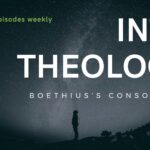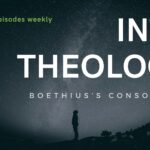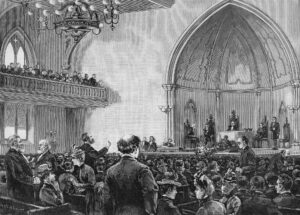Our faith centres on a person who loved us and died for us (1 John 4:10). We love him because he first loved us (1 John 4:19). Because of God’s great love, we can say with Paul that we preach nothing but Christ and him crucified (1 Cor 2:2). But our focus on Jesus does not mean that we should embrace the slogan, “I follow Jesus, not the Bible.”
Would Jesus say that? Better yet: did Jesus say that? After his resurrection, Jesus appeared to two groups of disciples. At this time, he could have pointed to himself and said, “Here I am.” Instead, he pointed to the Scripture and said, “Here I am.”
The Road to Emmaus
The resurrected Jesus met Cleopas and an unnamed disciple while they were walking to Emmaus. Not recognizing the Lord, they told Jesus (whom they did not recognize) what had happened in Jerusalem, namely, the events surrounding the death of Jesus. Yet Cleopas and the other disciple did not understand the significance of the empty tomb.
Without revealing his identity to the disciples, Jesus responded: “O foolish ones, and slow of heart to believe all that the prophets have spoken! Was it not necessary that the Christ should suffer these things and enter into his glory?” (Luke 24:25–26). Jesus then began “with Moses and all the prophets” and “interpreted to them in all the Scriptures the things concerning himself” (Luke 24:27).
After breaking bread with the two disciples, Jesus revealed himself to them before disappearing. The disciples responded by saying, “Did not our hearts burn within us while he talked to us on the road, while he opened to us the Scriptures?” (Luke 24:32). What made their hearts burn was Jesus interpreting the Scripture to them, and not just in a general way. Jesus showed them what the Bible said “concerning himself.” Jesus himself points to the Scripture to explain why he had to suffer and “enter into his glory.”
After Emmaus
For Jesus, Scripture interprets him. It’s not Jesus or the Bible. It’s the Bible and Jesus. In the same chapter of Luke, Jesus appeared to the disciples and allowed them to see him. While eating with the disciples, Jesus once again pointed to the Scriptures to clarify what he accomplished and to give the disciples their marching orders:
Then he said to them, “These are my words that I spoke to you while I was still with you, that everything written about me in the Law of Moses and the Prophets and the Psalms must be fulfilled.” Then he opened their minds to understand the Scriptures, and said to them, “Thus it is written, that the Christ should suffer and on the third day rise from the dead, and that repentance for the forgiveness of sins should be proclaimed in his name to all nations, beginning from Jerusalem. You are witnesses of these things. And behold, I am sending the promise of my Father upon you. But stay in the city until you are clothed with power from on high.” (Luke 24:44–49).
The Old Testament explains the mission of Jesus. And by opening the eyes of the disciples, they understood how the Old Testament not only points to Christ but defines the apostolic mission of preaching to the nations.
The Bible and Jesus
Jesus did not say, “Follow me, not the Bible.” He did say that the Old Testament speaks about himself. And he did interpret what the Old Testament says concerning himself to the disciples. Certainly, Jesus meant for the disciples to follow him. But he meant for them to do so by studying the Scriptures to understand the significance of his life.
And throughout the book of Acts, we see the disciples of Jesus preaching him by showing how Jesus fulfills the Scripture. The disciples preached Christ by preaching Scripture. They found no tension here. They spoke of Christ crucified and they showed how the Scripture points to Christ and him crucified.
To know Christ, we need to know his word. And it is in Scripture where we come face-to-face with our saviour. “For God, who said, ‘Let light shine out of darkness,’ has shone in our hearts to give the light of the knowledge of the glory of God in the face of Jesus Christ” (2 Cor 4:6). So let’s not split apart what God has joined together. The word of God testifies to the Word of God. Preach Christ and do so by preaching the word of God.






















